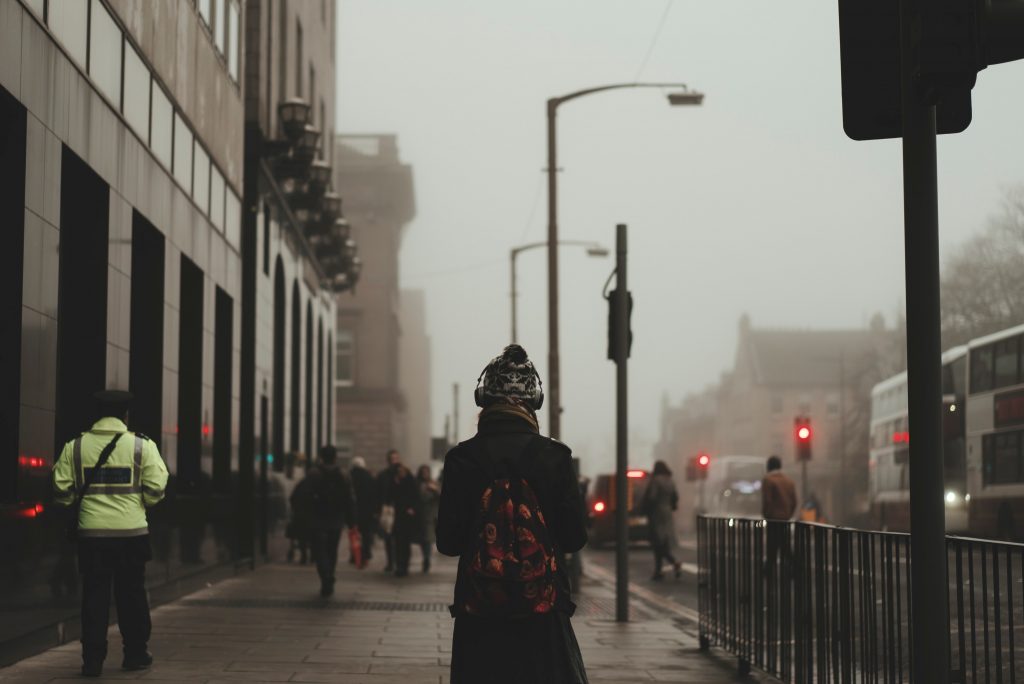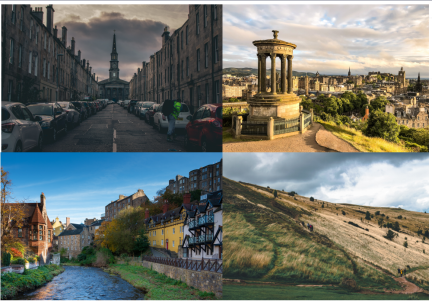Prepare for starting university tips – an international student’s perspective

By Win, MSc Environmental Protection and Management
As an international student, I can vividly remember how excited and also nervous I was before coming to Edinburgh. Occupied with IELTS English Language test, Tier 4 student visa application and medical check-up, I was also plagued by many burning questions. What should I bring? Have I forgotten anything essential? What do I need to do during the welcome week? Been there, done that! To help easing your anxiety, let me share with you some tips and items that you should pay attention to before departure and upon arrival.
The university has put together a website with all the information you will need as a New Student: https://www.ed.ac.uk/students/new-students but here are my additional tips and advice!
- Biometric Residence Permit (BRP)
Unlike previous years, however, it is no longer possible to arrange and collect your BRP from the university during the welcome week due to COVID-19.
You can find out more information about your BRP on the website here: https://www.ed.ac.uk/student-administration/immigration/applying-for-visa/your-biometric-residence-permit-brp
You can find out more information about what travel documents you need and ones you need to collect on our new students website here: https://www.ed.ac.uk/students/new-students/ready-university/move-edinburgh/arrive-overseas/travel-documents

Do not forget about bringing your power bank and travel adapter. You will need them to charge your smartphone or tablet. Absolutely essential to ward off boredom while waiting for your flight. Photo by Jeshoots.com on Unsplash.
- Flight
A flight to Edinburgh will usually involve one or two transits. If you check online, it is recommended that you have at least 2 hours for an international connection. However, I personally recommend that you should have at least three hours between flights. This is because sometimes flight departures are delayed (oh, a common occurrence that will make even the seasoned travelers very stressed out) and sometimes you might get randomly selected for additional security checks (which normally requires you to unload your entire hand carry baggage for inspection) before boarding.
Any long flight transit is unpleasant but running (and panting) to reach your next connecting terminal is worse.
- Baggage allowance
This is sometimes easily overlooked. While you are always given a generous checked baggage allowance for your international flights, you might get a reduction to your checked baggage allowance for your domestic flights though, especially if you need to claim and recheck in your baggage for your domestic flights. Excess baggage charges can cost you quite a fortune but it is completely avoidable if you do due diligence.
Do not book the cheapest or shortest flight without checking the flight details (especially if you need to retrieve and recheck in your baggage) and baggage allowance.
- Phone with Internet access
It can be intimidating to travel without a phone that has Internet access. I understand that you will want to be able to use Google Map (do you know that you can download offline maps and your phone does not need Internet to use its GPS function), check in with your family (should be able to get free Internet access at the airports) or surf the Internet whenever you want. Fear not, you can actually get a free SIM card prior to your departure and get it activated upon arrival.
Please do not abuse the service though.
- Transportation from the airport to the city
There are three options: taxi, tram and bus. If you have heavy baggage with you, it is easier to just get a taxi to get to your accommodation in the city. If you opt for a scenic view of the city, train and bus are both decent options if your accommodation is located near the stations along their travel route. If you want to find out more about the timetable and network map, you can visit the Lothian bus or Edinburgh trams website.
Do not forget about your warm clothes because it can get quite cold after sunset, especially if you are arriving late at night.
For information and guidance on Scottish Government rules on safe travel, please visit the new students website here: https://www.ed.ac.uk/students/new-students/ready-university/move-edinburgh/travel-edinburgh

Edinburgh weather is unpredictable. It is common to experience a sudden shower, surprising hail and foggy days, so bring warm clothes and an umbrella. Photo by Ross Sneddon on Unsplash.
- Travelling in the city
If you happen to stay quite a distance away from the university, you should consider getting a Ridacard. There are four Ridacard deals: 1-week advance, 4-week advance, annual advance and direct debit monthly. And one good news is that students can get a discounted rate (which you can apply for after getting your student matriculation card though). This will help you to skip the hurdle of carrying heavy coins for bus fare and avoid the whole exact fare hassle.
If you want to explore the city, getting a 1-week advance Ridacard is not a bad idea unless you are a peripatetic person.
For information and guidance on Scottish Government rules on safe travel, please visit the new students website here: https://www.ed.ac.uk/students/new-students/ready-university/move-edinburgh/travel-edinburgh
- Register with a local doctor
After sorting out your accommodation, it is imperative for you to register with a local doctor as soon as possible. Please do not wait until you are stricken with an illness because GP registration and appointment takes time, especially during the start of an academic year. If you are staying near Bistro Square, it might be easier to register with the University Health Service at the Richard Verney Health Centre. Otherwise, you can use Google Map to find out which GP practices are available near your accommodation.
Oh, some GP practices get filled up with new students very quickly, so do not procrastinate!
- Miscellaneous stuff to buy
Now that you have settled down, you might be thinking about getting cloth hangers, table lamps, kitchenware and even winter gear. Can I recommend visiting the local charity shops near your accommodation? Many household items get donated (otherwise they end up getting discarded) by graduating students to these charity shops. You can get them (often still in good shape and of decent quality) at a lower price and support these charity shops at the same time! Due to COVID-19, however, do check if they are open for business to avoid disappointment.
Support reduce, reuse and recycle!

There are likely changes to how classes will be conducted for the 2020-2021 academic year. A crowded lecture hall (as pictured) is very unlikely. Photo by Mikael Kristenson on Unsplash.
- Academic timetable
By now, you should have read your degree programme to learn more about your compulsory and optional courses. While it is ideal to choose the optional courses that interest you the most, you should also take course assessment into consideration. Trust me, you do not want to have too many exams (date and location of the exams will not be announced until much later into the semester) or written assignments in one semester.
One popular strategy is to attend the classes which interest you during the first two weeks of the semester and go through the revised course booklet that will provide you an outline of the course timetable and contents. Make sure you do not have too many written assignment due in the same week, otherwise be prepared to burn the midnight oil for several nights.

Do you prefer the historic heart of Edinburgh’s Old Town (top left; photo by Marek Szturc on Unsplash), the iconic monument of Calton Hill (top right; photo by Kate Bielinski on Unsplash), the tranquil view of Dean Village (bottom left, photo by Andy Falconer on Unsplash), or the scenic landscape of Arthur’s Seat (bottom right, photo by Dominik Resek on Unsplash)?
2020-2021 is going to be an unique but nonetheless exciting academic year. There will be many new changes due to the new normal. Edinburgh, however, will remain Edinburgh. It is a city you will likely fall in love with, so make good use of your time here. Explore and enjoy the city while striving for the best in your study.
Hope this blog helps!
Win Sim, MSc Environmental Protection and Management
Follow us on Instagram or Twitter for more updates from our Geosciences students!



